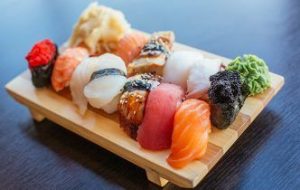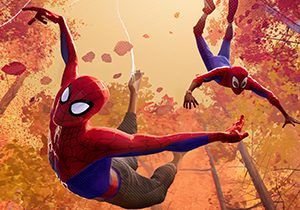
Roald Dahl: English primary resource
Discover interesting facts about the children’s author
This primary resource provides an opportunity to begin discussion about the author Roald Dahl, and other famous children’s authors. How many children’s books did Roald Dahl write? Where did he write most of his stories? When is Roald Dahl Day celebrated?
Pupils will discover interesting facts about Roald Dahl and why we celebrate Roald Dahl Day in our National Geographic Kids’ English primary resource.
The teaching resource can be used in study group tasks, as a printed handout for each pupil to review and annotate, or for display on the interactive whiteboard for class discussion.
Activity: Ask children to research the language of Roald Dahl, known as ‘Gobblefunk’. They could use their research to make a short leaflet or poster that translates some of the words, or defines their meaning. Pupils could write their own short stories in the style of Roald Dahl, using yellow paper and pencils, in the same vein as the writer.
N.B. The following information for mapping the resource documents to the school curriculum is specifically tailored to the English National Curriculum and Scottish Curriculum for Excellence. We are currently working to bring specifically tailored curriculum resource links for our other territories; including South Africa, Australia and New Zealand. If you have any queries about our upcoming curriculum resource links, please email: schools@ngkids.co.uk
This English primary resource assists with teaching the following Lower Key Stage 2 English (Year 3 & 4) objectives from the National Curriculum:
Pupils should be taught to: develop positive attitudes to reading and understanding of what they read by:
- identifying themes and conventions in a wide range of books
- discussing words and phrases that capture the reader’s interest and imagination
- plan their writing by: discussing and recording ideas
- draft and write by: in narratives, creating settings, characters and plot
- evaluate and edit by: assessing the effectiveness of their own and others’ writing and suggesting improvements
- read aloud their own writing, to a group or the whole class, using appropriate intonation and controlling the tone and volume so that the meaning is clear.
National Curriculum Upper Key Stage 2 English (Year 5 & 6) objective:
Pupils should be taught to: maintain positive attitudes to reading and understanding of what they read by:
- identifying and discussing themes and conventions in and across a wide range of writing
- making comparisons within and across books
- understand what they read by: identifying how language, structure and presentation contribute to meaning
- discuss and evaluate how authors use language, including figurative language, considering the impact on the reader
plan their writing by:
- identifying the audience for and purpose of the writing, selecting the appropriate form and using other similar writing as models for their own
- noting and developing initial ideas, drawing on reading and research where necessary
- in writing narratives, considering how authors have developed characters and settings in what pupils have read, listened to or seen performed
- draft and write by: in narratives, describing settings, characters and atmosphere and integrating dialogue to convey character and advance the action
- perform their own compositions, using appropriate intonation, volume, and movement so that meaning is clear.
This English primary resource assists with teaching the following Literacy and English Early level objectives from the Scottish Curriculum for Excellence:
- I enjoy exploring events and characters in stories and other texts, sharing my thoughts in different ways.
- I enjoy exploring and playing with the patterns and sounds of language and can use what I learn.
Scottish Curriculum for Excellence First level Literacy and English objectives:
- I can share my thoughts about structure, characters and/or setting, recognise the writer’s message and relate it to my own experiences, and comment on the effective choice of words and other features.
- I enjoy creating texts of my choice and I regularly select subject, purpose, format and resources to suit the needs of my audience.
Scottish Curriculum for Excellence Second level Literacy and English objectives:
I can:
- discuss structure, characterisation and/or setting
- recognise the relevance of the writer’s theme and how this relates to my own and others’ experiences
- in discuss the writer’s style and other features appropriate to genre.
- I enjoy creating texts of my choice and I regularly select subject, purpose, format and resources to suit the needs of my audience.
Scottish Curriculum for Excellence Third level Literacy and English objectives:
I can:
- discuss and evaluate the structure, characterisation and/or setting using some supporting evidence
- identify the main theme of the text and recognise the relevance this has to
my own and others’ experiences
- identify and comment on aspects of the writer’s style and other features appropriate to genre using some relevant evidence.
- I enjoy creating texts of my choice and I am developing my own style. I can regularly select subject, purpose, format and resources to suit the needs of my audience.
Scottish Curriculum for Excellence Fourth level Literacy and English objectives:
I can:
- discuss and evaluate the effectiveness of structure, characterisation and/or setting using some supporting evidence
- identify how the writer’s main theme or central concerns are revealed and can recognise how they relate to my own and others’ experiences
- identify and make a personal evaluation of the effect of aspects of the writer’s style and other features appropriate to genre using some relevant evidence and terminology.
- I enjoy creating texts of my choice and I am developing my own style. I can regularly select subject, purpose, format and resources to suit the needs of my audience.
Download primary resource
More Like

10 ‘Horrible’ Facts about London!

Meet Narwhal the ‘unicorn’ puppy

Japan facts









LEAVE A COMMENT
THANK YOU
Your comment will be checked and approved shortly.
WELL DONE,
YOUR COMMENT
HAS BEEN ADDED!
COMMENTS
cool I am a home schooler
CUSTOMIZE YOUR AVATAR